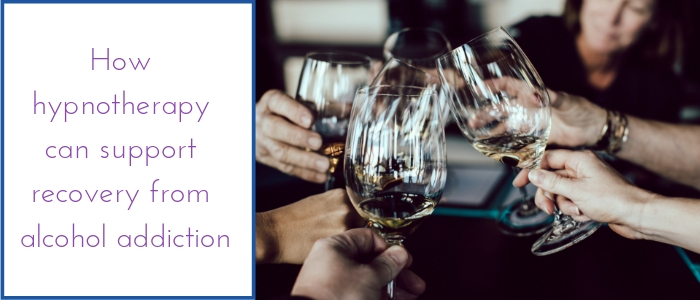
Acknowledging that you misuse alcohol is a big step and one that should be commended. Addiction is complicated but can be overcome. The first port of call for many is a trip to the doctors where advice can be given.
Treatment for alcohol addiction often involves looking at what may have caused your addiction as well as creating management techniques to stay sober. Support groups can be a big help here. Talking to others who can relate to your experiences and having the opportunity to share tips and tricks can be incredibly valuable.
Talk therapies like cognitive behavioural therapy may also be recommended to help you gain more insight into your thoughts and behaviours. Hypnotherapy is another tool you can add to your arsenal, helping to change unhealthy habits and keeping you focused on your recovery.
What is hypnotherapy?
This approach works on a subconscious level, helping to alter negative thought patterns and change behaviour. In a typical session, your hypnotherapist will help you settle into a state of hypnosis (deep relaxation). Once you’re in this state, your subconscious will be more open to suggestion. At this point, your hypnotherapist can offer more positive suggestions to help you break negative habits.
This is just one example of how hypnotherapy can be used, other techniques such as regression may also be used to help you understand where and when your addiction first formed. Having a greater understanding of what lead you to have an unhealthy relationship with alcohol can be integral to your recovery.
Rather than just trying to ‘stop drinking’, hypnotherapy looks at the root of the problem and help change deep-seated behaviours.
“Hypnosis reaches into your mind and puts in suggestions that help you break the addiction at the source. While the body does carry a physical addiction that demonstrates itself through cravings, hypnosis can help reduce the sensations so that it becomes easier to resist alcohol.”
– Alcohol addiction and how to combat it with hypnosis by Biodun Ogunyemi ANLP, BNLP, SNLP, C.H, Dip.Hyp

How can it support recovery?
Hypnotherapy during your recovery can help to reinforce the changes your making and help you avoid drinking. During your recovery, you may also find your addiction triggers come up. For example, if stress contributed to the development of your addiction, you’ll need to be mindful of your stress levels when in recovery.
Hypnotherapy for stress can help here, helping you feel more relaxed, calm and in control. Often hypnotherapists will teach you self-hypnosis, so you can use the techniques you’ve learnt to reduce stress outside of the session.
If you used to rely on alcohol to feel confident when socialising, going out again whilst in recovery can feel daunting. Again, this is something hypnotherapy can help with. Helping to combat negative self-talk and instil self-belief on a subconscious level, find a hypnotherapist who can help with confidence.
When it comes to addiction recovery, it’s all about taking small steps forward and figuring out what approach works best for you. If you’ve never considered hypnotherapy before – learn more about it and book a consultation with a hypnotherapist. They’ll be able to talk you through the process and outline how they can support you.